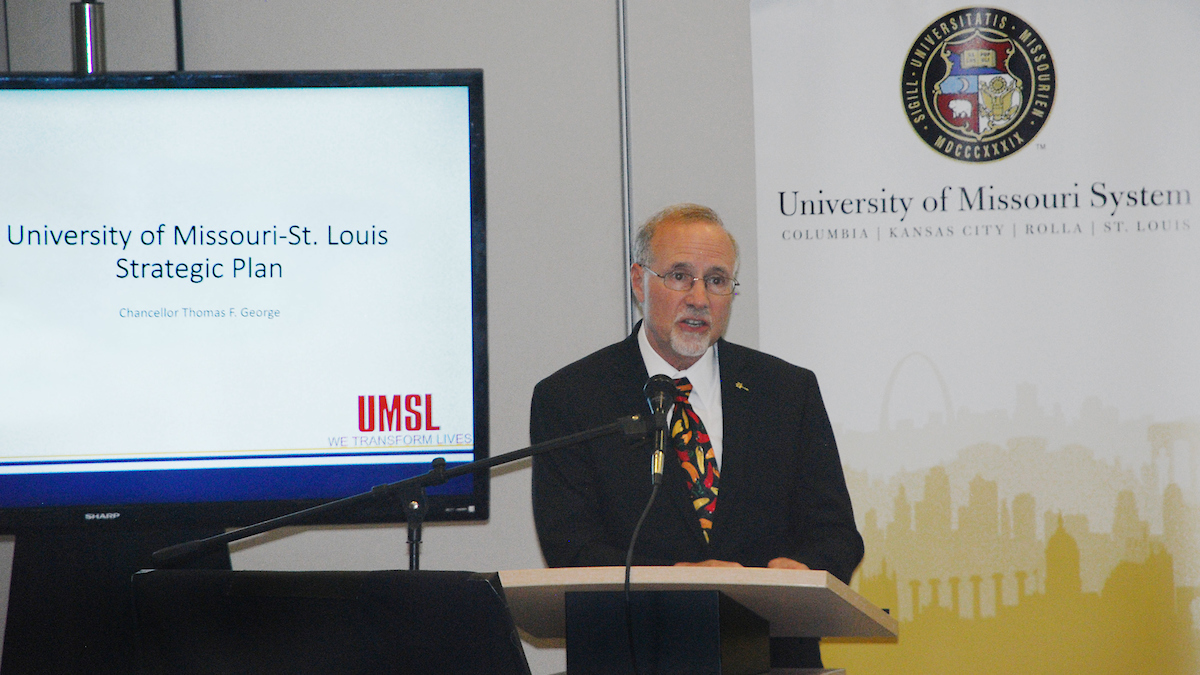
Chancellor Tom George presents UMSL’s strategic plan Thursday at a meeting of the Curators of the University of Missouri in Kansas City, Missouri. (Photo courtesy of UM System)
Chancellor Tom George laid out an ambitious plan for growth and achievement at the University of Missouri–St. Louis over the next five years as he addressed the Curators of the University of Missouri at a meeting Thursday in Kansas City, Missouri.
With the board voting its approval, it is now time for UMSL to begin implementing that strategic plan and shaping its future through 2023 and beyond.
“The plan has been a real rallying point for us at the University of Missouri–St. Louis,” George said as he presented to the curators on Thursday. “Many different groups across the campus – the committees that have been formed, led by our Provost Kristin Sobolik – have come together at the same time that we’re also gearing up for our new accreditation with the Higher Learning Commission. The timing couldn’t be better.”
The plan is built upon a single mission to transform lives. George highlighted some of the goals for enrollment, student success and research for the next five years. They include:
- Partnering with the St. Louis Regional Chamber of Commerce and committing to help increase the number of adults in St. Louis who hold a bachelor’s degree to 40 percent by the year 2025
- Increasing the number of degree-seeking students from 10,250 to 11,250
- Raising UMSL’s overall graduation rate from 60 percent to 65 percent
- Increasing the retention of Pell Grant recipients from 69 to 80 percent and the rate of undergraduate minorities from 71 percent to 78 percent
- Increasing the employment outcome rate of graduates from 85 percent to 90 percent
- Raising external awards for research and creative works from $24 million to $39 million
- Increasing the number of journal articles and books by 10 percent per year
UMSL will simultaneously continue its focus on community engagement and economic development through efforts like such as the Anchor Mission Initiative – a partnership between the Coalition of Urban and Metropolitan Universities and the Democracy Collaborative – as well as the recent formation of the Community Innovation and Action Center, building on the foundation of the Public Policy Research Center.
The process of setting those goals and plotting a course to achieve them has been in motion throughout the past year, and it has involved people from across the UMSL campus.
All four universities of the UM System must work within a framework outlined in the Missouri Compacts for Excellence, which focus on student success; research and creative works; engagement and outreach; planning, operations and stewardship; and inclusive excellence.
But each institution also has leeway to set their own goals and design the steps to meet them.














